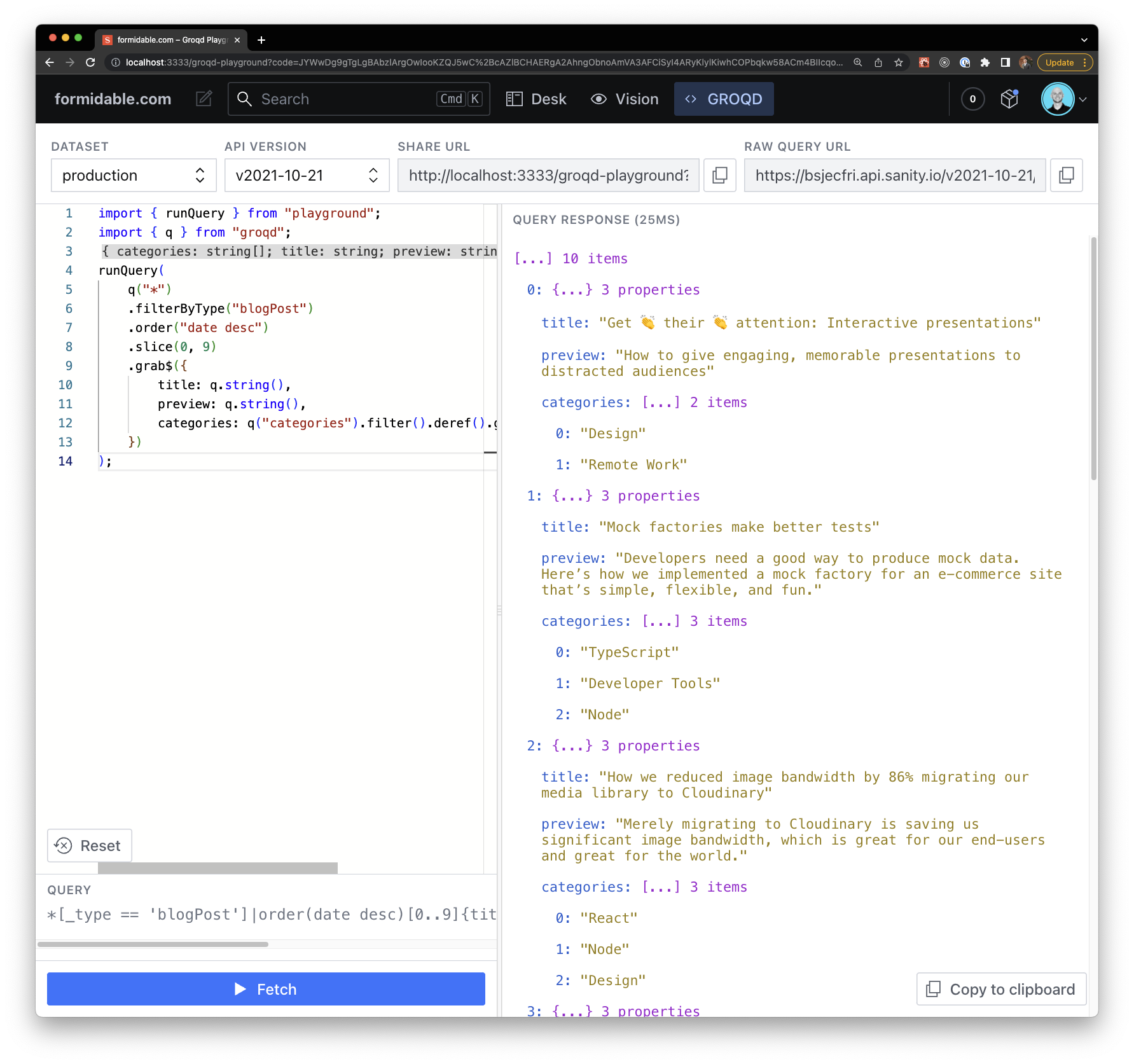Overview
GroqD is a GROQ query builder, designed to give the best GROQ developer experience possible.
It gives you the flexibility of GROQ, the runtime safety of Zod, and provides schema-aware auto-completion and type-checking.
What is GROQ?
GROQ is Sanity's open-source query language.
"It's a powerful and intuitive language that's easy to learn. With GROQ you can describe exactly what information your application needs, join information from several sets of documents, and stitch together a very specific response with only the exact fields you need."
Usage Example
GroqD uses a strongly-typed chaining syntax to build queries:
import { createGroqBuilder, z } from 'groqd';
// 👇 Import Sanity types, generated by your Sanity project. See "Configuration" docs for more details.
import type * as SanityTypes from "./sanity.types.ts";
// 👇 Create a strongly-typed query builder:
const q = createGroqBuilder<{
schemaTypes: SanityTypes.AllSanitySchemaTypes
referenceSymbol: typeof SanityTypes.internalGroqTypeReferenceTo;
}>();
// ✨ Write strongly-typed queries, with auto-complete and runtime safety!
const productsQuery = (
q.star
.filterByType("products")
.order("price desc")
.slice(0, 10)
.project(sub => ({
name: z.string(),
price: z.number(),
slug: sub.field("slug.current", z.string()),
imageUrls: sub.field("images[]").field("asset").deref().field("url", z.string())
}))
);
Everything in the above query is strongly-typed, according to the Sanity schema defined in your sanity.config.ts. This means you get auto-complete for all strings, including "price desc" and "slug.current"!
The example above generates a GROQ query like this:
*[_type == "products"] | order(price desc) [0...10] {
name,
price,
"slug": slug.current,
"imageUrls": images[]->url
}
and executing the query will return strongly-typed results:
const results = await runQuery(productsQuery);
/*
* results: Array<{
* name: string,
* price: number,
* slug: string,
* imageUrls: Array<string>,
* }>
*/
Why GroqD over raw GROQ?
Sanity's CLI can generate types from your raw GROQ queries. This works well for simple use-cases.
However, GroqD aims to maximize the developer experience, improve generated types, and ensure scalability. Namely, it adds:
- Auto-completion - write queries quickly and confidently
- Runtime validation - ensure data integrity, catch errors early
- Transformation - map values at runtime, like parsing dates
- Fragments - create reusable query fragments, and compose queries from other fragments
The Playground
We also provide a Vision-like Sanity Studio tool for experimenting with groqd queries and running them against your actual dataset.

The playground is a drop-in Sanity plugin, and is an easy way to test out groqd within your dataset. See the playground docs for more information on the playground.